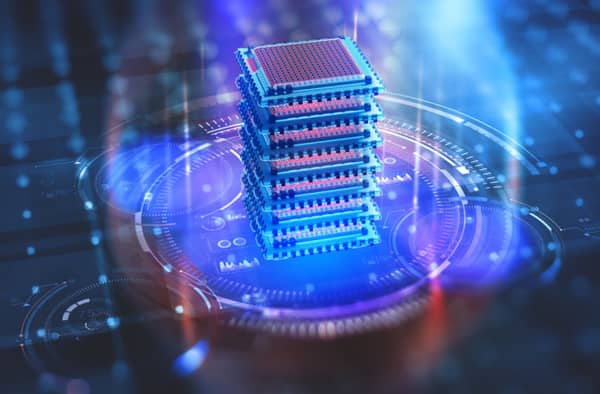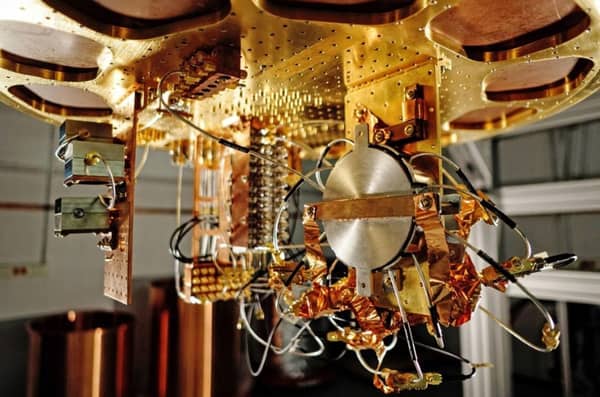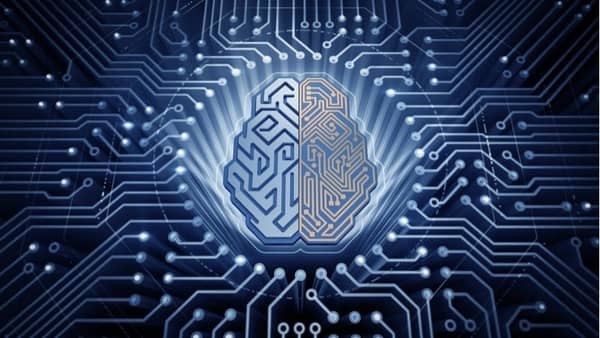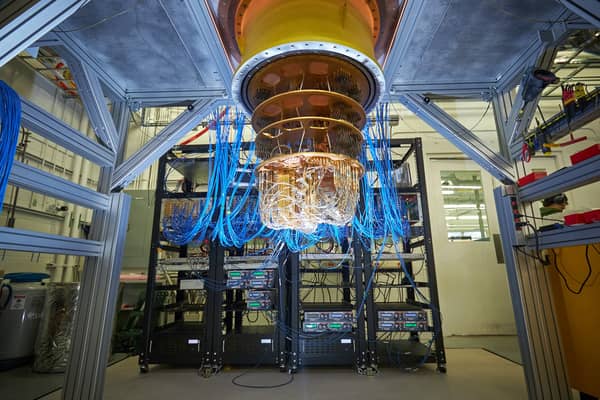
What Is a Grid-Interactive Data Center?
February 16, 2022
Frequently Asked Questions in Technology (Part 10)
March 9, 2022The modern computer age began in 1977 with the introduction of the personal computer. There were only three pre-assembled personal computers that could be purchased that year, which included Apple’s Apple II, the Tandy Radio Shack TRS-80, and the Commodore Business Machines Personal Electric Transactor (PET for short). Today, it would be difficult to count the various computer models with all of the different customizable specifications from the multitude of manufacturers. The smartphones in our pocket would also add to this number. Many individuals, businesses, and governments rely on computers for almost every aspect of communication, but traditional computers could potentially be obsolete shortly with the introduction of quantum computing and quantum computers.

What Is Quantum Computing?
There is much excitement about the innovation, potential power, and benefits of quantum computing. Quantum computing uses the ideas of quantum mechanics to increase and improve the processing power of computers. The potential power of quantum computing can support data analysts in solving certain computational problems more quickly. In some instances, quantum computing could potentially be even more beneficial than supercomputers. So, how do quantum computers work? And when will we be able to get our hands on one?

What Is a Quantum Computer?
The term quantum computer is a bit misleading. We associate computers with desktops, laptops, and even our smartphones. All of these devices (even the world’s fastest supercomputers) use the same fundamental rules. A quantum computer is vastly different. A traditional “bit” stores information as a zero or a one. A quantum bit or a “qubit” can store information as a zero and one at the same time.
One explanation of a traditional bit compared to a quantum bit is the example of a donut. Let’s say a donut represents a traditional bit. The frosted side represents the 1 and the plain side represents the 0. A traditional bit can either be read as a 0 or a 1. Now think of this donut on a string spinning around. The spinning donut represents what is known as a “superposition” in a quantum computer. While in this superposition, the qubit can be thought of as both a combination of 0 and a 1.
A quantum computer can be built in different ways, which means the look of a quantum computer can vastly differ. A quantum computer can be built with the use of diamonds, photons (light), and trapped ions (atoms with a net electric charge). Maybe the most popular way to build a quantum computer is with the use of superconductors. Both Google and IBM have been working on a project that uses superconductors and quantum chips to build a quantum computer. This version of a quantum computer houses the superconductors and quantum chips within a large infrastructure that looks like a chandelier. The infrastructure is used to cool down the superconductors and quantum chip, but to also manipulate and control them.
Quantum computers have the potential to be more powerful than any of the supercomputers in existence. Development and innovation in the quantum computer realm continue to be a focus because of its potential power. The world’s data including banking information, government data, and personal information uses an encryption method that keeps all of this data secure. A quantum computer can easily solve these encryptions, which makes it even more important to look for new ways to encrypt our data. Innovations in quantum computing will not only be beneficial, but these same innovations could be vital to protect the world’s important data.

What Is Quantum Supremacy?
The term quantum supremacy could be quite confusing, but the concept of it is quite simple. The world’s current most advanced supercomputers still have their limitations. Some equations and problems cannot be solved by a classic computer in a feasible amount of time that would be remotely useful to the problem. The concept of quantum supremacy proves that a quantum computer could and will outwork and out quantify even the most advanced and top-of-the-line supercomputers. If a quantum computer can solve these problems that classical computers (supercomputers) cannot solve—it will then have proven the concept of quantum supremacy.
Depending on who you ask, the concept of quantum supremacy may have been proven. In 2019, Google announced it had achieved quantum supremacy in an article published in the scientific journal Nature. It stated that the company’s 54-quibit Sycamore processor was able to perform a calculation within 200 seconds that would’ve taken the world’s fastest supercomputer 10,000 years to calculate. IBM also claims that their supercomputer wouldn’t take 10,000 years, but only two and a half days to complete this same calculation. Notwithstanding the disagreement, many researchers are accepting Google’s claims of quantum supremacy.

Quantum Computing Will Advance Artificial Intelligence
Artificial intelligence is a technology that has been instrumental in many different aspects of many different industries. It is being used in the IT and technology industry, the medical and health care industry, education, manufacturing, and within data center operations. Artificial intelligence leverages computers and machines to problem-solve and make decisions the same way the human mind does. Artificial intelligence also incapsulates machine learning, which helps machines imitate intelligent human behaviors by learning and using the knowledge to make better decisions in the future.
Artificial intelligence and quantum computing are both transformational technologies that have endless potential and possibilities. We haven’t even come close to reaching the potential of AI because we are still lacking the technological advancements needed. If we are ever to achieve the potential of artificial intelligence that researchers are hoping to achieve—advancements and innovations in quantum computing will most likely need to happen first. Quantum computers will be able to give the needed boost in computational power that will allow AI to become what we think it could become.

When Will Quantum Computers Be Available?
Researchers are still developing quantum computing technology, but there has been a tremendous growth in the field of quantum computing within the last year. IBM produced a 127 quibit Eagle processor, Google announced quantum supremacy, and Honeywell Quantum Solutions and Cambridge Quantum demonstrated real-time error correction and a breakthrough algorithm, which allows quantum machines to do more substantial calculations with fewer qubits.
A Chinese start-up company called SpinQ first unveiled a commercially available quantum computer in 2011 for $10 million. It has recently announced a more simplified version that will cost about $5000. This is a scaled-down version of the quantum computers found in research labs and universities, but it can give very wealthy hobbyists the means to own one of the first quantum computers in history.
This particular quantum computer desktop weighs in at 121 pounds and uses nuclear magnetic resonance, which traps molecules in powerful magnetic fields and blasts them with pulses of radio frequencies to modify the spin state of individual atoms. This quantum computer also does not use supercooled superconducting magnets but uses permanent magnets that still produce a strong magnetic field.
We are still in the early stages of introducing quantum computers to the masses, but technological innovations in the field are leading to much excitement. Quantum computing and quantum computers will bring the world into the next phase of technological advancements, and it could soon make our traditional computers and encryption strategies obsolete.
